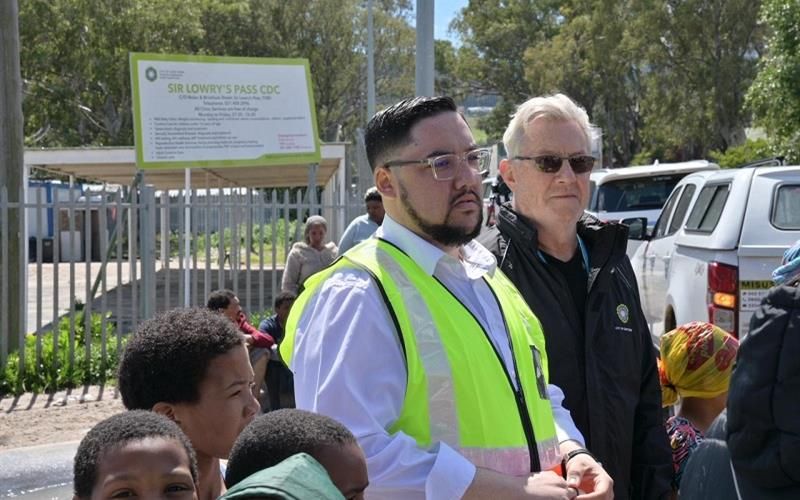Joint Task Team and the Baboon Strategic Management Plan
In the captivating Cape Peninsula, an extraordinary effort is currently in progress to safeguard the indigenous Chacma baboon population while also addressing the concerns of urban communities that may encounter them. The Cape Peninsula Baboon Management Joint Task Team (JTT), a collaboration between SANParks, CapeNature, and the City of Cape Town, is ardently working on creating and implementing a long-lasting management strategy for the Chacma baboons residing in the Cape Peninsula.
The foundation for collaboration among the three parties was established through a Memorandum of Agreement signed in July 2023. The JTT is now set to complete the Baboon Strategic Management Plan (BSMP) by September 2023, and it will be accessible to the public upon its completion.
During the development of the proposal, site visits took place in Simon’s Town and Scarborough to evaluate the feasibility of constructing baboon-proof fences. The initial locations were selected based on factors such as financial resources, terrain, land ownership, environmental authorizations, and the projected return on investment with regards to maintaining baboons within their natural habitat and away from urban regions.
Informative Report and Community Engagement
The JTT encourages communities located near the baboons’ natural habitat to access and review the comprehensive report available on the websites of SANParks, CapeNature, and the City of Cape Town. The document provides insight into the successful establishment of baboon-proof fencing in the Cape Peninsula, showcasing visual representations of the fence design that permits the unobstructed passage of smaller animals. Additionally, the report elaborates on crucial factors considered while determining a location’s appropriateness for baboon-proof fencing and offers maps of potential fencing sites within the Cape Peninsula.
It should be emphasized that no final decisions have been made regarding the fencing locations or their implementation. Over the coming months, the JTT will present and discuss the proposals from the fencing report with communities that will be affected. The first round of community engagements is scheduled for October and November and will involve residents from Simon’s Town, Constantia, Murdoch Valley, and Zwaanswyk/Tokai.
Collaborative Solutions and Localized Strategies
The purpose of these community meetings is to cultivate cooperation in developing area-specific solutions and strategies tailored to each community. The JTT will present an analysis of human-baboon conflict issues in the affected areas and suggest possible short-, medium-, and long-term strategies for consideration and discussion. Affected communities are encouraged to propose their own strategies, actions, and interventions, as well as familiarize themselves with the fencing report.
By focusing on community engagement, the JTT ensures that they develop localized strategies that cater to the diverse needs, circumstances, resources, and geographical concerns of each area. The objective is to devise a management plan that is most suitable and pertinent to each community, while also garnering the support of residents.
The Power of Collaboration and Mutual Understanding
The efforts of the Cape Peninsula Baboon Management Joint Task Team are a prime example of the potential for collaboration among government entities, environmental organizations, and local communities. Through united efforts, it becomes possible to strike a balance between conserving the Chacma baboons’ natural habitat and ensuring the safety and well-being of urban dwellers.
The work of the JTT highlights the significance of nurturing a mutual understanding between humans and wildlife in today’s world. As urban areas continue to expand and intrude upon the natural habitats of various species, initiatives like this one are crucial in facilitating the harmonious coexistence of humans and animals. With the unwavering commitment of the JTT and the collaboration of affected communities, the Chacma baboons in the Cape Peninsula and their human neighbors can anticipate a more sustainable and peaceful future.








